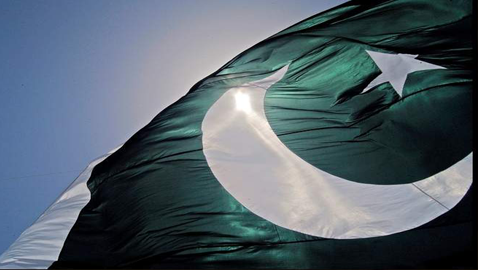Government is for the 2%
Since independence, Pakistan’s common people (Aam Awam) have been suffering in the slavery of the privileged and ruling class also known as ‘2%’. There are two sets of laws in effect in Pakistan; first, Rule of Law is for the 98% masses (Aam Awam), second, ‘Ruler over law’ or ‘The Ruler is the law’ for 2%. After 67 years from inception, Pakistan is still suffering from the earliest form of socialism in which wealth is not the only commodity collected by the privileged classes and their friends but liberty, freedom and justice are seen as the sole property of the ruling class.
Roti , kapda, makaan, taleem, tahafuz aur sehat (Translation: food, clothing, shelter, education, safety and healthcare) are the basic necessities of a human life. These necessities should be provided by the government to its people. Unfortunately this is not the case in Pakistan and citizens can’t afford to wait anymore. Sometimes, common people peacefully take matters into their own hands.
When a main road, on the busy residential and business area, in Karachi needs repair, the Provincial government officials said that Residents/Businesses would have to wait for the next local government before repairs were completed. Residents and businesses, many of whom depended on the road for their livelihood, organized themselves. They spent three days and Rs. 900,000 fixing the road.
When Lyari, a neighborhood in the heart of Karachi, needed government schools for young kids to keep them away from illegal activities, government was not there to improve existing schools or build new schools. Local residents of Lyari took matter into their hands and started “Street Corner Schools”. At one time there were more than 100 street schools where kids and adults were taught for nominal charges by college students in their free time. Street Corner Schools not only provide education but also an income to college students to continue their education.
Healthcare, like education, is another human need that is highly dependable on government support. To no one’s surprise, healthcare is also neglected by the government. In 1951, a common man in Karachi started a single room dispensary to provide healthcare to the poor and needy people of his community. After 60 years , that one room dispensary is now the Edhi Foundation, Pakistan’s largest non-profit organization. Edhi Foundation runs the world’s largest ambulance service and operates free nursing homes, orphanages, clinics, women’s shelters, and rehab centers for drug addicts and mentally ill individuals.
One of the basic responsibilities of any government is to provide safety and security to its citizens and their personal properties. But insecure citizens in one neighborhood of Gulshan-e-Iqbal Karachi came together to do what government should do well (safety and security), but did not. The Neighborhood Association contracted with a private firm to provide security. Residents pay a monthly fee and the association jointly purchases services from a private security firm.
Since childhood, I have been hearing three words “Roti , Kapda aur Makaan” in discussions at home, with relatives or when my parents spoke to friends. In veracity, these are only pre-election slogans to attract the poor and after elections these slogan become reality and commodities for privileged classes. Since the formation of Pakistan, government has failed to provide “Roti , Kapda aur Makaan” to common people. Once again common man like Edhi sahib and Ramzan Chhipa sahib are providing “Roti , Kapda aur Makaan” to common people of Pakistan without the assistance of federal or provincial government.
When governments don’t serve the people, the common people (Aam Awam) will find ways around the government. One question remains unanswered in Pakistan: Should the government serve the people, or should the people serve the government?

